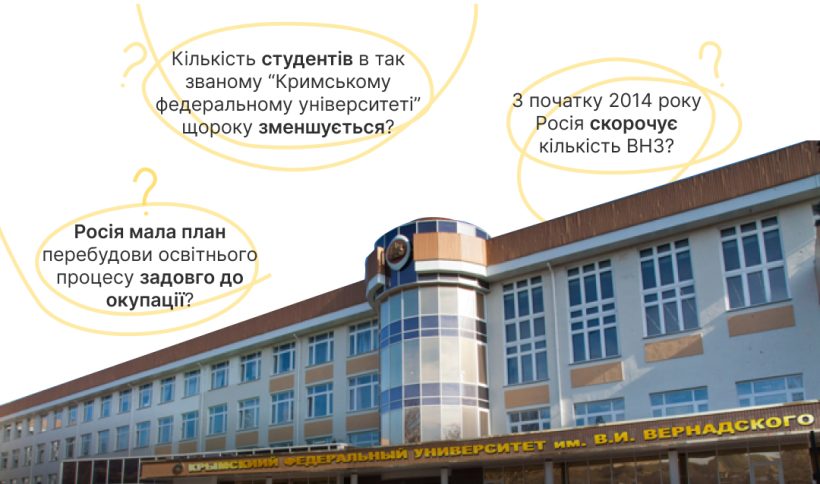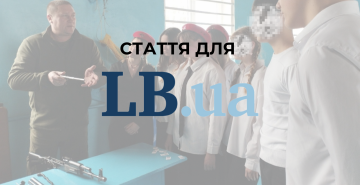

The so-called higher education of the occupiers in the south of Ukraine. Part 1 – Crimea and the city of Sevastopol
One of the features of the Russian occupation regime on Ukrainian lands is special attention to education. Moreover, the educational sphere covers all the main links – from preschool education to higher education. The question of the use of education for the formation of “Homo Rashisticus” is the subject of research, unfortunately, not by many researchers. The impact of the occupiers on school education is mainly considered because this is the largest audience of children, who, in addition, are very active in spreading information, especially on social networks. Russian actions in preschool education attract no less attention because young children always evoke great empathy. Russian dominance in higher education attracts attention, less media attention than school and preschool.
Higher education, like preschool and school, has its differences; there are quite a lot of them – for example, it covers, as it is possible to say, “older childhood”, on the verge of adulthood. In addition, if preschool and school education for children takes place in the so-called “compulsory order” when the child practically has no choice, then children consciously enter higher education institutions. And male and female students already have life experience, albeit small.
Literally, from the first days of the occupation of Crimea, the Russian authorities actively began to act in the field of higher education. And in 2022, with the beginning of a full-scale invasion, the Russian occupiers were no less active in higher education in the south of Ukraine – in the Zaporizhzhia and Kherson regions.
Analyst and expert of the CCE "Almenda" Oleh Okhredko collected statistical data on occupied higher education at the TOT of Crimea and the city of Sevastopol. The numbers will show what is happening with higher education at these TOTs.
Read the material on the website of ZMINA. Human Rights Center (in Ukrainian).
The article was prepared by the Centre of civil education “Almenda” as a part of the project “Steps towards the meeting: bringing youth from temporarily occupied territories closer to reintegration”. The project is implemented with the financial support of the Ministry of Foreign Affairs of the Czech Republic as a part of the Transition Promotion Program. The views represented in this material belong to the authors and do not reflect the official position of the Ministry of Foreign Affairs of the Czech Republic.



